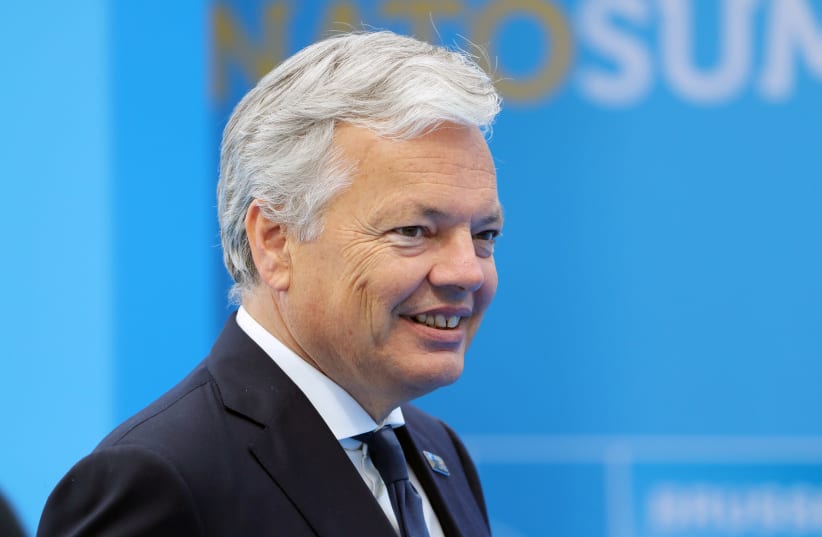“The ‘enhancement’ of the status of the Mission of Palestine in Brussels doesn’t imply any change in the position of Belgium on the question of the recognition of a Palestinian state,” the ministry added.It clarified that the change involved granting diplomatic status to an additional member of the PLO mission. At present only the head of mission has that status.Al-Farra spoke as PA Foreign Minister Riad Malki was in Brussels, where he met on Thursday with EU foreign policy chief Federica Mogherini and discussed issues such as Gaza and the West Bank. During the talks, Malki also pushed for unilateral EU recognition of the Palestinian territories as a state.Mogherini’s office said that in her meeting with Malki she had, “stressed the unwavering commitment of the EU to a negotiated two-state solution as the only viable and realistic way to end the Israeli-Palestinian conflict.”A day earlier Malki met with Belgium Foreign Minister Didier Reynders, who tweeted later about his country’s support for two states.The EU, of which Belgium is a member, believes that Palestine should only be recognized as a state upon conclusion of a final status agreement with Israel for a two-state solution.To date, Sweden is the only western EU member to break with the organization’s foreign policy, having recognized Palestine as a state in 2014. A number of EU member states that have been part of the former Soviet Union, conferred Palestine’s statehood decades ago when they were part of the Soviet bloc.Most western EU member states recognize PLO representative offices, but do not award them full embassy status that would be given to sovereign nations with diplomatic ties.In a tweet Reynders said that his country had set “new priorities” with Malki, which called for “development cooperation, training of diplomats, [and the] enhanced status for the Palestinian Mission in Brussels.”In 2011, Belgium was the only one among UN member states that voted to upgrade the Palestinian status at the UN to that of a non-member state.Productive meeting with @RiadMalki and @AlexanderDeCroo to review the #Belgium-#Palestine relationship: new priorities for development cooperation, training of diplomats, enhanced status for the Palestinian Mission in Brussels. (1/2) pic.twitter.com/HFxGb3ybaq
— didier reynders (@dreynders) 7 November 2018
In January, Belgium is set to assume a two-year seat on the UN Security Council, a position which is rotated every two years.Reynders said on Twitter, “As Belgium joins the Security Council, long and rich discussion with Riad Malki of Palestine on ways to relaunch a peace process toward a common sustainable future for two states, Israel and Palestine, as well as on the role of the EU & the UN.”UN membership status which is akin to global statehood recognition, can only be granted by the UNSC.The Palestinians have launched multiple campaigns to secure UNSC support for such membership, but the US has blocked all such attempts. As one of five permanent UNSC members, the US has veto power at the council and has opposed to unilateral Palestinian statehood.As #Belgium joins the #SecurityCouncil, long and rich discussion with @RiadMalki of Palestine on ways to relaunch a peace process toward a common sustainable future for two states, #Israel and #Palestine, as well as on the role of the #EU & the #UN. (2/2) pic.twitter.com/mwsggQ5xWm
— didier reynders (@dreynders) 7 November 2018
